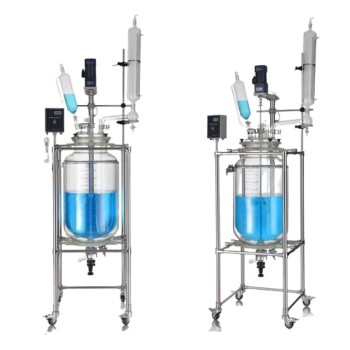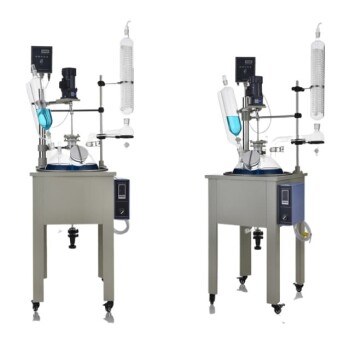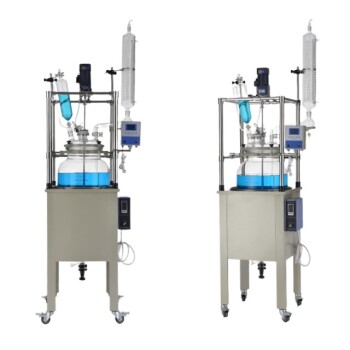A rotary evaporator, commonly referred to as a rotovap, is a versatile laboratory instrument used for processes like evaporation, concentration, drying, and solvent recovery. Its capacity typically ranges from 2 liters to 50 liters, making it suitable for a wide variety of applications, from small-scale research experiments to large-scale industrial processes. The capacity of a rotary evaporator is a critical factor in determining its suitability for specific tasks, such as handling small sample volumes in research labs or large volumes in industrial settings like pharmaceuticals, chemicals, and food production.
Key Points Explained:

-
Definition and Purpose of a Rotary Evaporator
- A rotary evaporator is a laboratory device used for distillation, solvent recovery, and purification of substances through evaporation.
- It is widely used in industries such as pharmaceuticals, chemicals, food production, and research laboratories for tasks like concentration, drying, and separation of solvents.
-
Capacity Range of Rotary Evaporators
- Rotary evaporators are available in capacities ranging from 2 liters to 50 liters.
- Smaller capacities (e.g., 2-5 liters) are ideal for small-scale experiments and research labs, while larger capacities (e.g., 20-50 liters) are suited for industrial applications requiring high-volume processing.
-
Types of Rotary Evaporators and Their Capacities
- Vertical Rotary Evaporators: Typically used in chemistry and research labs for small sample volumes. These often have capacities in the lower range (2-10 liters).
- Horizontal Rotary Evaporators: Designed for large-scale industrial applications, such as in the chemical, pharmaceutical, and food industries. These models usually have higher capacities (10-50 liters).
-
Factors Influencing Capacity Selection
- Application: Small-scale experiments or pilot studies may require lower-capacity rotovaps, while industrial production demands higher capacities.
- Sample Volume: The volume of the sample being processed directly influences the required capacity.
- Efficiency: Larger capacities are more efficient for continuous distillation of large amounts of volatile solvents under reduced pressure.
-
Applications Based on Capacity
- Small-Scale Applications (2-10 liters): Suitable for research labs, universities, and small-scale experiments in pharmaceuticals or chemistry.
- Large-Scale Applications (20-50 liters): Ideal for industrial processes in chemical manufacturing, food production, and large-scale solvent recovery.
-
Advantages of Choosing the Right Capacity
- Efficiency: Matching the capacity to the application ensures optimal performance and reduces waste.
- Cost-Effectiveness: Selecting the appropriate size avoids unnecessary expenses associated with over- or under-capacity equipment.
- Scalability: Larger capacities allow for scalability in industrial settings, accommodating growing production needs.
-
Considerations for Purchasing a Rotary Evaporator
- Volume Requirements: Assess the typical volume of samples to be processed to determine the appropriate capacity.
- Future Needs: Consider potential future requirements to ensure the equipment remains useful as needs evolve.
- Space Constraints: Ensure the physical size of the rotovap fits within the available lab or industrial space.
In conclusion, the capacity of a rotary evaporator is a crucial factor that determines its suitability for specific applications. With capacities ranging from 2 liters to 50 liters, rotary evaporators can cater to a wide range of needs, from small-scale research to large-scale industrial production. Understanding the requirements of your application and selecting the appropriate capacity ensures optimal performance, efficiency, and cost-effectiveness.
Summary Table:
| Capacity Range | Applications | Key Features |
|---|---|---|
| 2-10 liters | Small-scale research, universities, pilot studies | Compact, precise, ideal for low-volume samples |
| 10-50 liters | Industrial processes, pharmaceuticals, food production | High-volume processing, scalable, efficient |
Need help selecting the right rotary evaporator for your needs? Contact our experts today!










